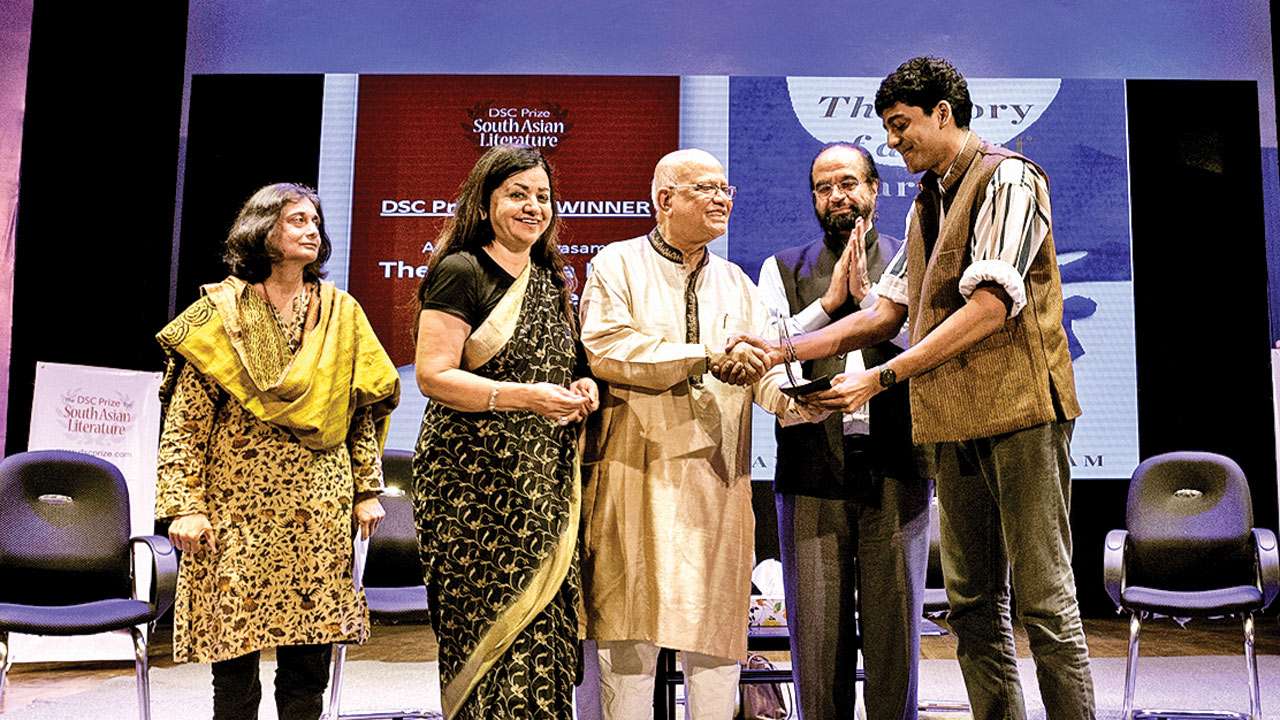
It’s a good time to be an Indian author in contention for a literary prize. This year saw the launch of two prizes with rather generous cash awards – the JCB Prize for Literature that will give out `25 lakh to ‘a distinguished work of fiction by an Indian author’ deemed worthy by a jury. The other, Kamaladevi Chattopadhyay Book Prize, given out by New India Foundation, is meant for non-fiction books and carries a cash award of `15 lakh. Until now, it was the DSC Prize for South Asian Literature, into its eighth year now, that was the most expensive, with a cash component of $25,000 (though until 2016, it was $50,000).
So why the rush of awards?
“Awards are very good for the publishing industry. They create a buzz around books and authors. The publicity translates into higher sales, which is great since very few people buy books these days. For sponsors, too, it works very well because the association with books and literature brings along a cache of respectability,” says the owner of an eminent Delhi bookstore. And it’s good for the authors, he adds, encouraging good writing and new talent.
And there’s plenty of these being thrown up by the prize juries. The JCB prize longlist, which was announced early last month, had two works by debutants – Shubhangi Swarup’s Latitudes of Longing and Devi Yeshodharan’s Empire. The other big trend that the prizes seem to be capturing is translations. Two works, Perumal Murugan’s Poonachi and Benyamin’s Jasmine Days, are among JCB’s longlist of 10 novels. In fact, 22 per cent of the entries the prize received were translated works. A focus on translation is part of the prize’s stated purpose and with the translator getting an additional `5 lakh in case the winning novel has been translated. So was the case with the DSC prize.
Of the 88 entries, the highest number it has got thus far since it was instituted in 2010, as much as 30 per cent are by debutants. Over half of these (15) are by women writers. In fact, more than half of all entries (45) are by women authors.
Strangely, there are very few prizes given out for non-fiction books – which has in recent years become the biggest category in terms of new books being published and sales in the publishing industry worldwide. The only ones are the Crossword Book Award for non-fiction, the Hindu Prize and Tata Lit Live. The Kamaladevi Chattopadhyay award is meant to fill this gap, with the award not limited to any nationality or language. The shortlist, which was unveiled recently, had one interesting entry – a book by a Norwegian professor published by Oxford University Press Worldwide, Social Justice Through Inclusion: The Consequences of Electoral Quotas in India.
It’s proof that it’s not just Indian publishers who’re publishing books to do with, or of interest to India – many publishers abroad, too, have their focus on the country – a pointer to the country’s growing clout in the global scheme of things. The same trend is reflected in the DSC prize getting a quarter of its submissions from publishers outside South Asia – the UK, US, Canada, Australia, etc.